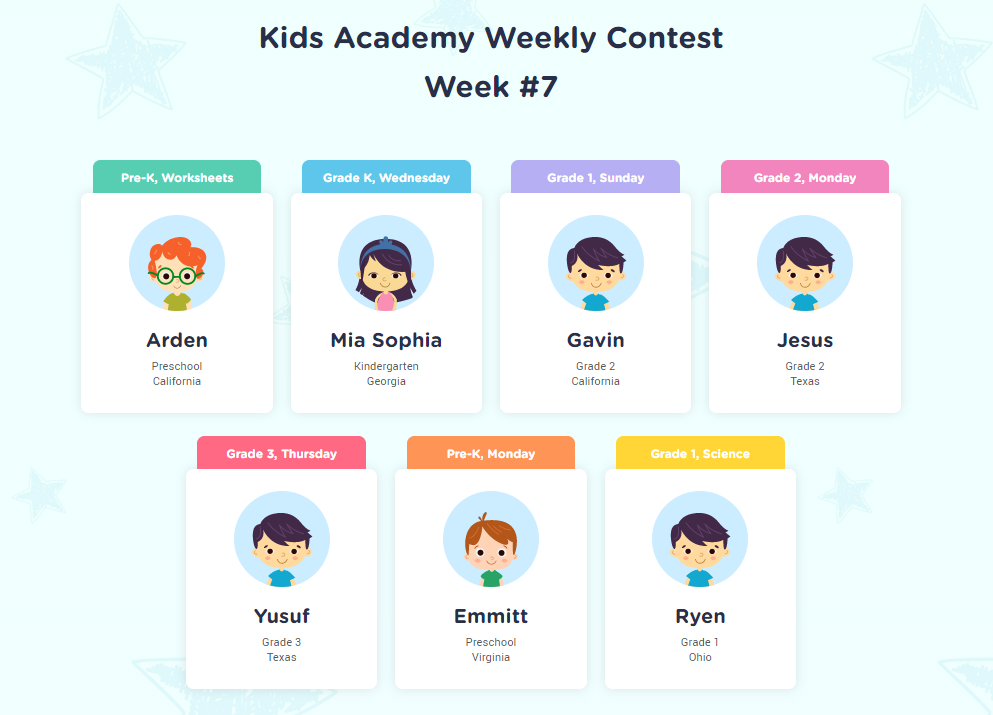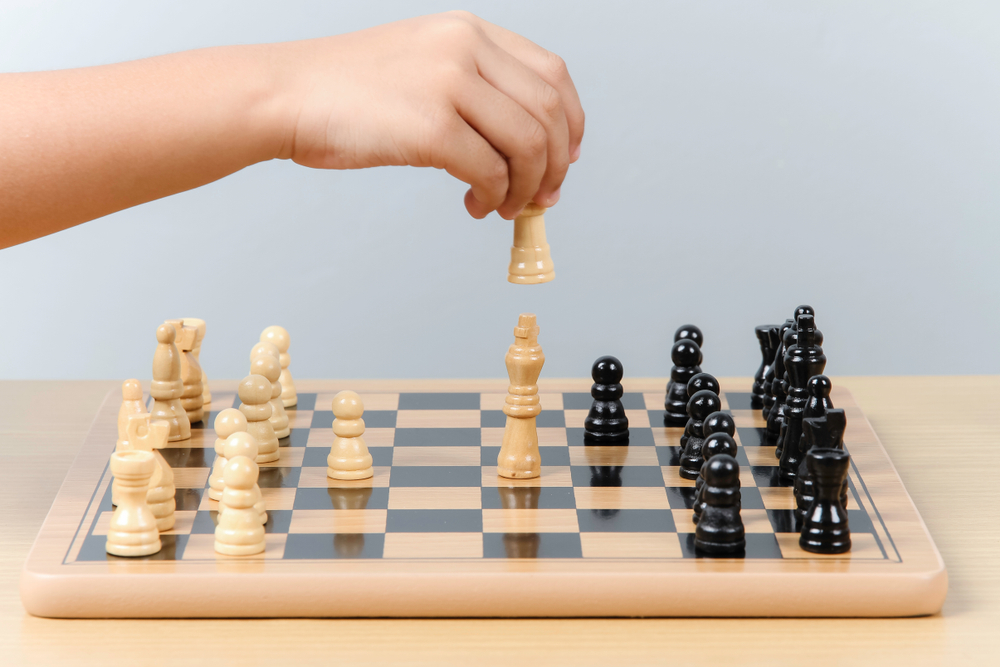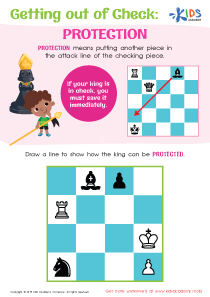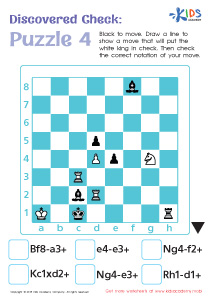Strategic thinking Chess Worksheets for 6-Year-Olds
3 filtered results
-
From - To
Unlock your child's potential with our "Strategic Thinking Chess Worksheets for 6-Year-Olds." These engaging activities are designed to introduce young learners to the fundamentals of chess, fostering critical thinking and strategic planning. Each worksheet combines fun illustrations with simple exercises to help children understand the game's rules and tactics. Perfectly tailored for early grade students, our worksheets make learning chess both enjoyable and educational. By focusing on problem-solving and forward-thinking, these activities ensure your child acquires essential skills that will benefit them both on and off the chessboard. Enhance your child's cognitive development through play with our unique chess worksheets!
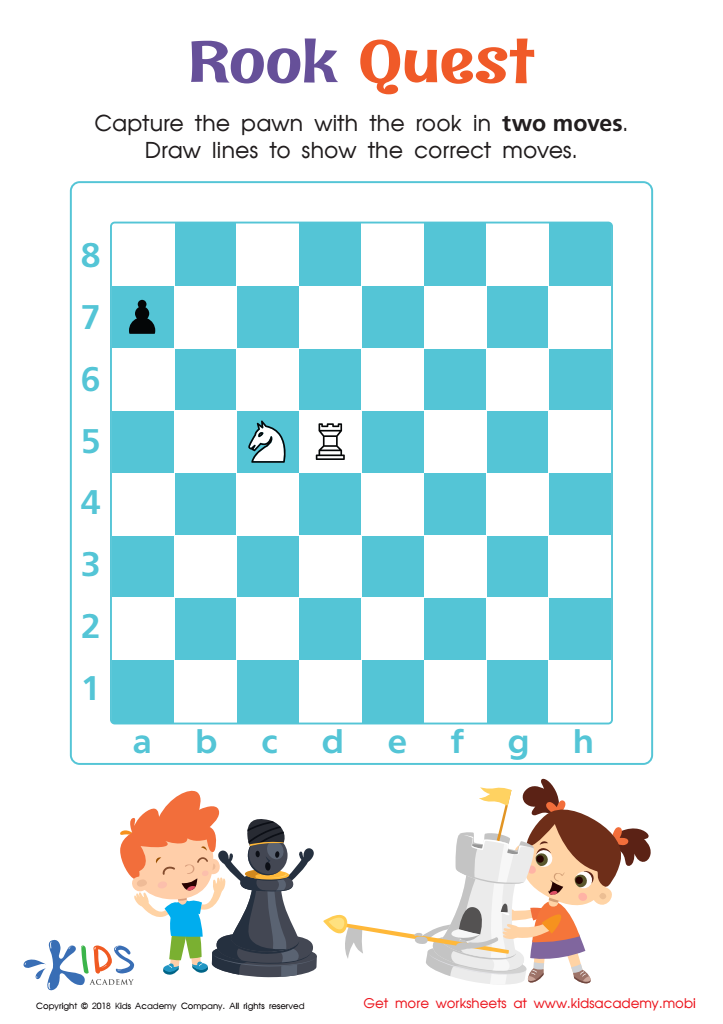

Rook Quest Worksheet
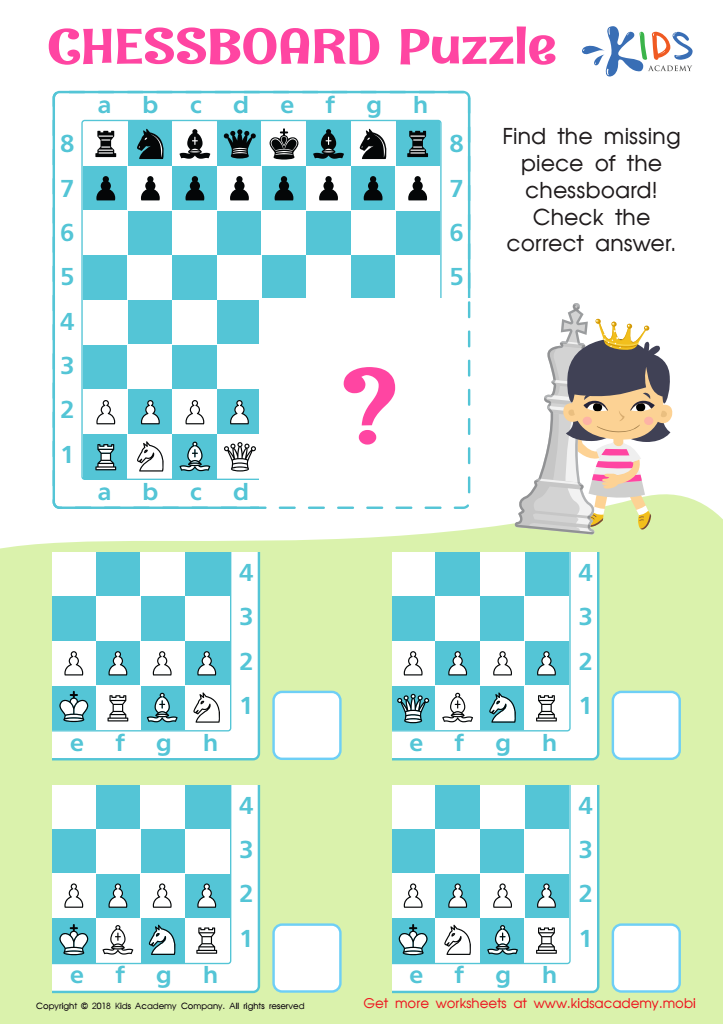

Chessboard Puzzle Worksheet
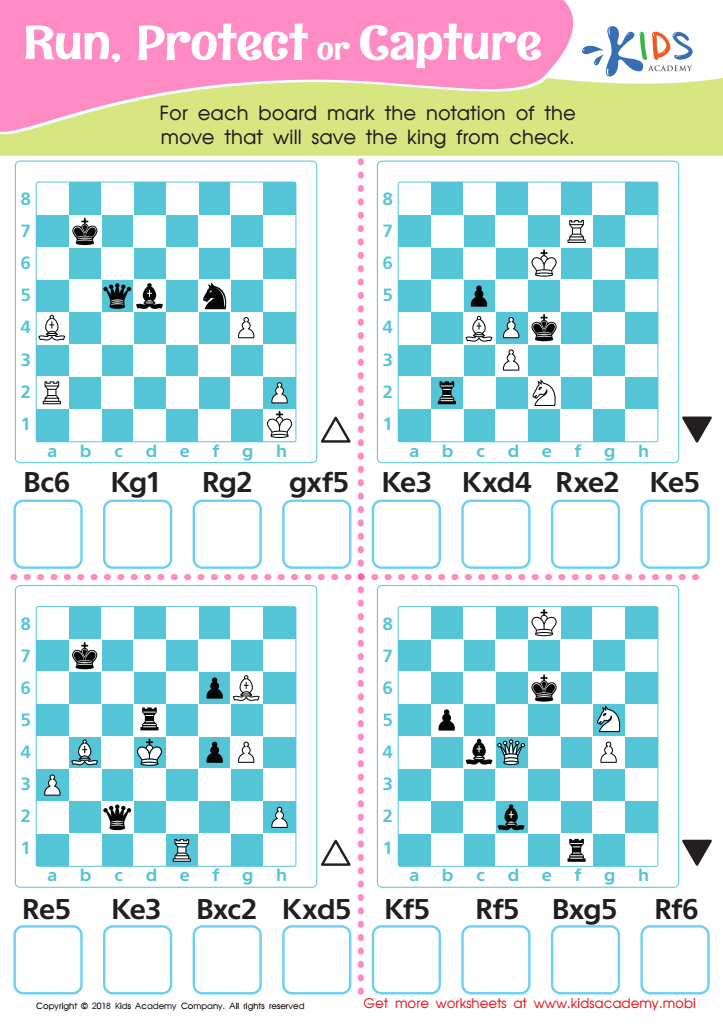

Run, Protect or Capture Worksheet
Parents and teachers should value strategic thinking in chess for 6-year-olds for several compelling reasons. Firstly, playing chess fosters cognitive development; it sharpens critical thinking, problem-solving skills, and enhances memory. Young children learn to plan, anticipate outcomes, and consider multiple perspectives—skills crucial not only in academics but in everyday decision-making.
Chess also improvements in concentration and focus. As children strategize and reflect on their moves, they develop the ability to sustain attention on a given task, a vital skill for success in classroom learning. Moreover, it strengthens mathematical abilities, as understanding the game's relationships and positions can enhance spatial understanding and improve computational thinking.
Social-emotionally, chess teaches patience, discipline, and the crucial lessons of coping with defeat graciously and celebrating victories modestly. For shy or introverted children, it provides an engaging environment to interact and bond with peers over a shared activity.
Preparing them for the future, chess equips children to tackle complex challenges by breaking them down into manageable tasks. Ultimately, encouraging young children to engage in chess can yield an array of beneficial life skills that support overall development, preparing them for both educational pursuits and personal challenges down the road.

 Assign to My Students
Assign to My Students



